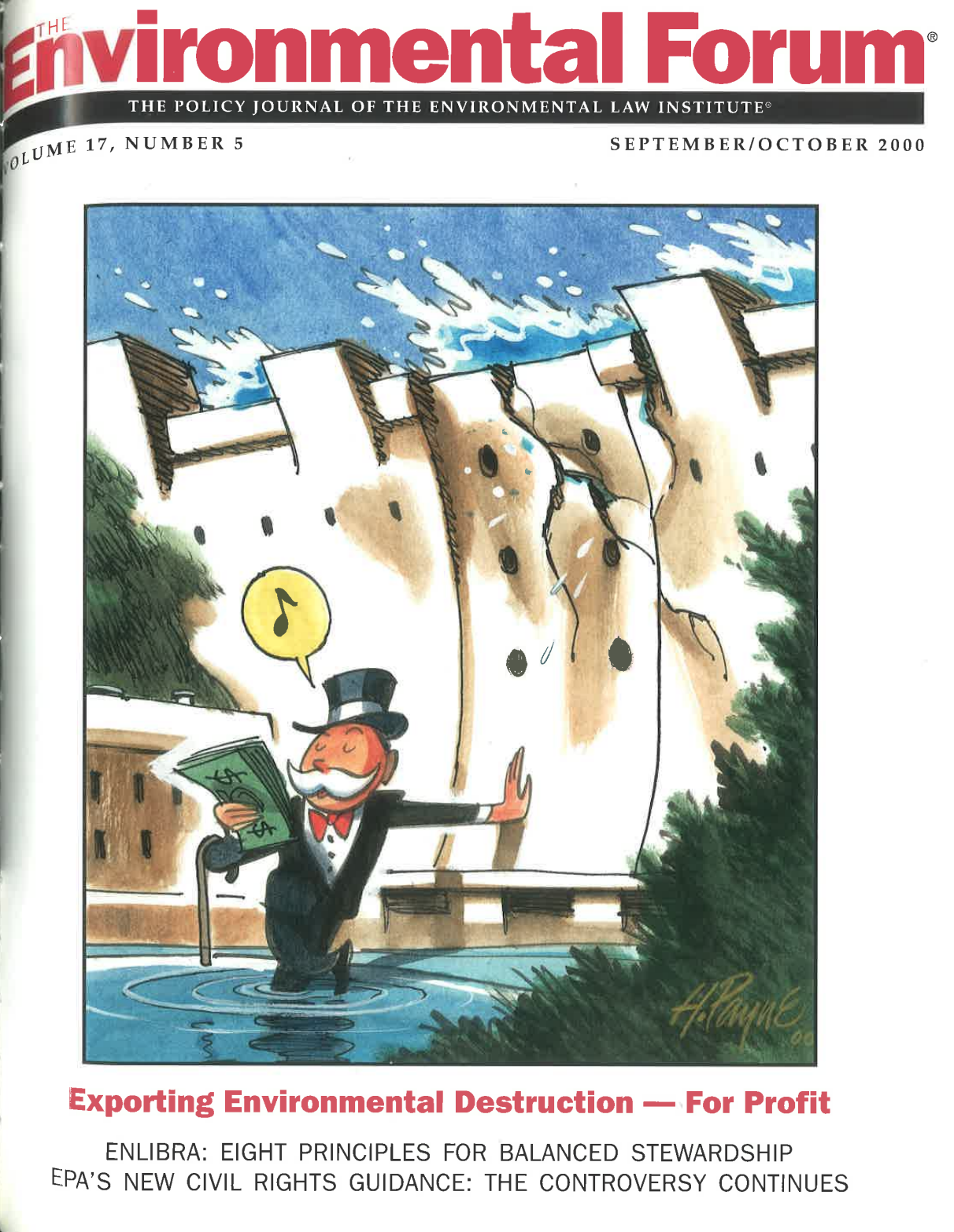- Bruce Rich
- Environmental Forum
- September-October 2000
- pp.32-40
With U.S. backing, the G8 Summit in July, 2000 ended with a proclamation to finally confront the environmental devastation caused by the “export credit agencies” of wealthy countries. This is the story of how most of these institutions operated under a cloak of secrecy with a mandate to promote domestic businesses abroad at almost any social cost....The expansion of export credit agencies over the 1990s has not been the triumph of free markets, but can be better caharacterized as the New Mercantilism...Private sector overseas investment is less "private" and "free market" than purported. Much has been indirectly or directly subsidized by national governments....The problem with the rich country governments' export credit agencie is that for most of their existence they have no development mandate whasoever, and only after 2000 began to agree to a voluntary and difficult to enforce environmental mandate....More recently, since this article was written, the rise of well financed export credit agencies in newly industrializing countries such as China, Brazil, and India has compounded the problem, risking a race to the bottom in environmental and social standards for government supported export financing.



